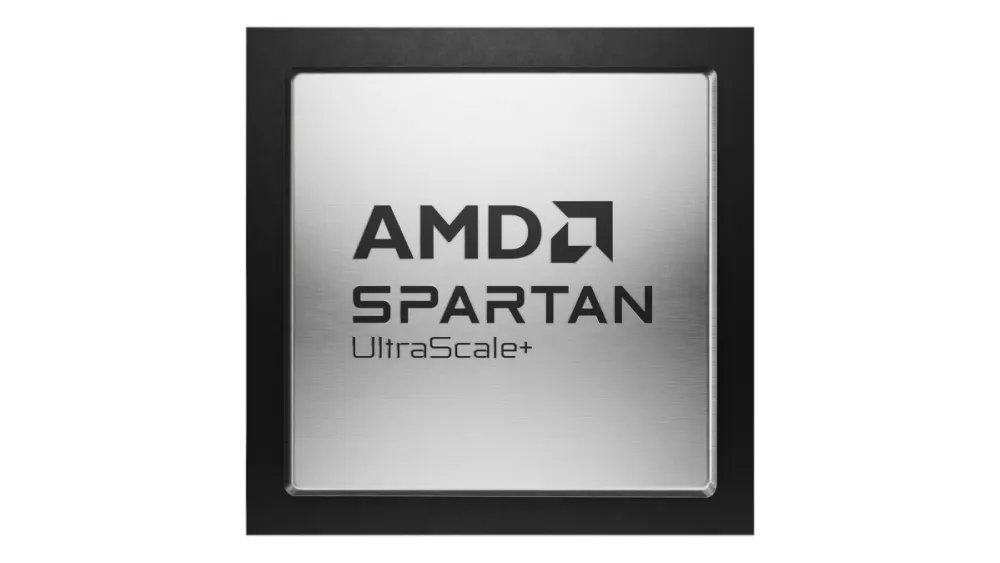AMD launches Spartan UltraScale+ series FPGA product portfolio
AMD has announced the launch of its new Spartan UltraScale+ series FPGA products, meticulously crafted for embedded vision, medical, industrial networking, robotics, and video applications. This pioneering range boasts compatibility with a higher number of I/O connections, alongside enhanced energy efficiency and fortified security features.
The Spartan UltraScale+ series represents AMD’s commitment to cost-optimized FPGA solutions, seamlessly integrating into the company’s portfolio of adaptive system-on-chip products. Designed for high-density applications at the edge of computing, these products offer superior cost-effectiveness and energy efficiency. Engineered using 28nm technology and finer processes, they are also compatible with AMD’s Vivado design suite and the Vitis unified software platform.

AMD emphasizes the reinforced security and functionality of the Spartan UltraScale+ series, utilizing universal design tools and ensuring an extended product lifecycle. By incorporating support for post-quantum cryptographic technologies and algorithms recognized by NIST, the series guarantees the protection of device IP addresses against cyber threats, enhancing device authentication security through the implementation of physical unclonable functions (PUFs).
Moreover, the Spartan UltraScale+ devices feature anti-tampering designs to maximize uptime and operational reliability.
By expanding the number of I/O connections and interface designs, AMD claims the Spartan UltraScale+ series can connect with up to 572 devices and systems, supporting 3.3V operations. The integration of a 16nm process architecture and various cooling technologies allows for a higher density of I/O connections in compact spaces as small as 10mm x 10mm, operating at lower power consumption.
Samples and evaluation kits for the Spartan UltraScale+ series FPGA products are expected to be available in the first half of 2025, with tool support via the AMD Vivado design suite commencing in the fourth quarter of 2024.





